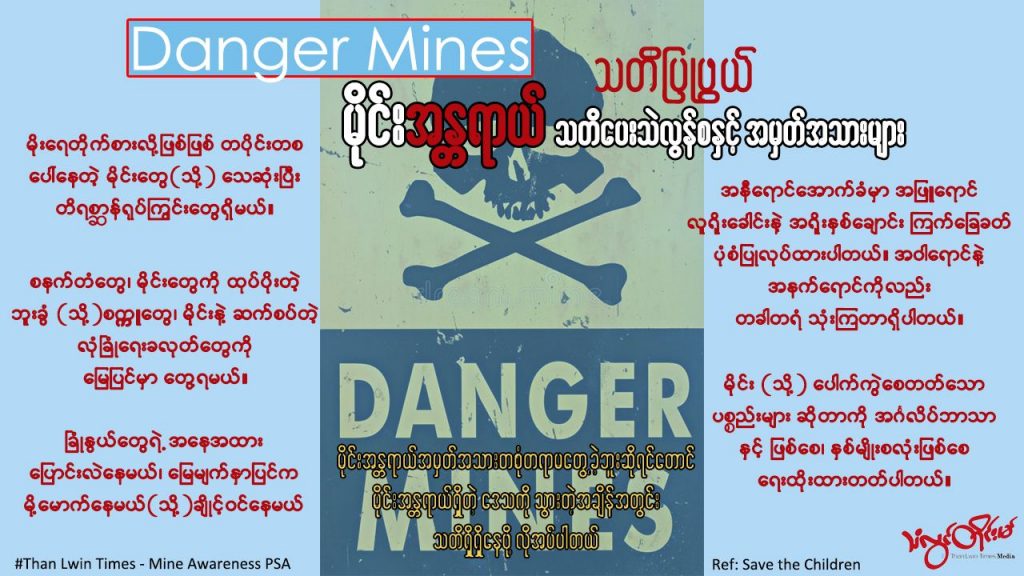Myawaddy, July (21)
The KNU-led revolutionary forces have been able to gain control over both rural and suburban areas in Karen State, which has seven townships, the resistance fighters told Than Lwin Times.
Karen State, where the military council’s Southeastern Command is primarily responsible for defense, security, and operations, has been a stronghold of revolutionary forces since the coup and is also home to the KNU headquarters.
During the more than two years of the coup, the military council’s territorial control in Karen State’s townships – Hlaingbwe, Thandaunggyi, Hpapun, Kawkayeik, Myawaddy, and Kyainseikgyi, except Baan Township—has become quite weak, according to the statements of the revolutionary forces.
Aung Sanshar, the commander of the Special Operations Force (S.O.F.), which is fighting against the military council in Karen state, said, “The military council can only control the neighborhoods of the townships, and the revolutionary forces can control the area in the rest of the villages, rural areas, main roads, and inter-village tracts”.
More than 9,000 clashes erupted between the junta army and resistance forces in KNU-controlled territory during the coup, with the junta suffering heavy losses, said the KNU.

The military council declared martial law on February 2 in Kyainseikgyi and Kawkayeik Townships in Karen State, where the military can only control the city’s neighborhoods.
Padoh Saw Kale Sae, the spokesperson of the KNU, told Than Lwin Times that, “During the coup, the weaker the military council’s ability to control the territory, the more the KNU’s administrative activities can be expanded”.
According to the situation on the ground, the military council is struggling to prevent the military bases stationed in Karen State from being attacked, and their battalions and camps from falling into the hands of their opponents.
According to the revolutionary forces, the approach to battle in Karen State changed during the more than two years since the coup, and the military council army has shifted from an offensive to a defensive strategy.
The military council army has recently suffered defeats in combat against the allied troops of the revolutionary forces led by the KNLA, forcing it to rely on airstrikes.
When the state of emergency ends in the near future, the military leader, General Min Aung Hlaing, has admitted in recent days that there is still a need to pay attention to security and the rule of law throughout the country.
News-Than Lwin Times
Photo-S.O.F.


